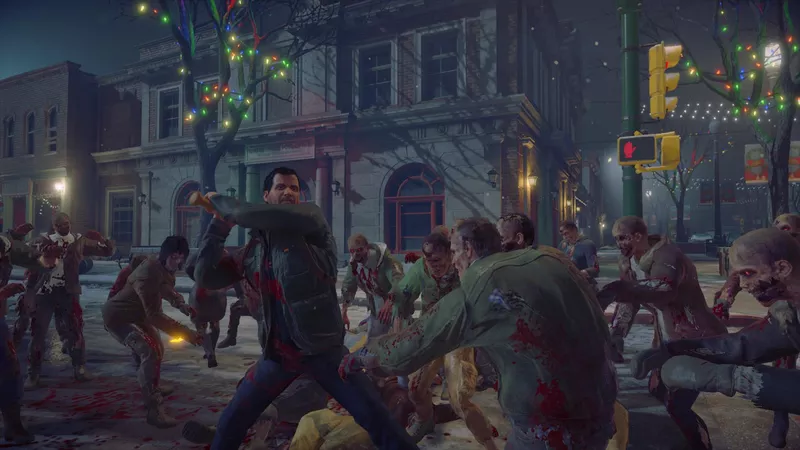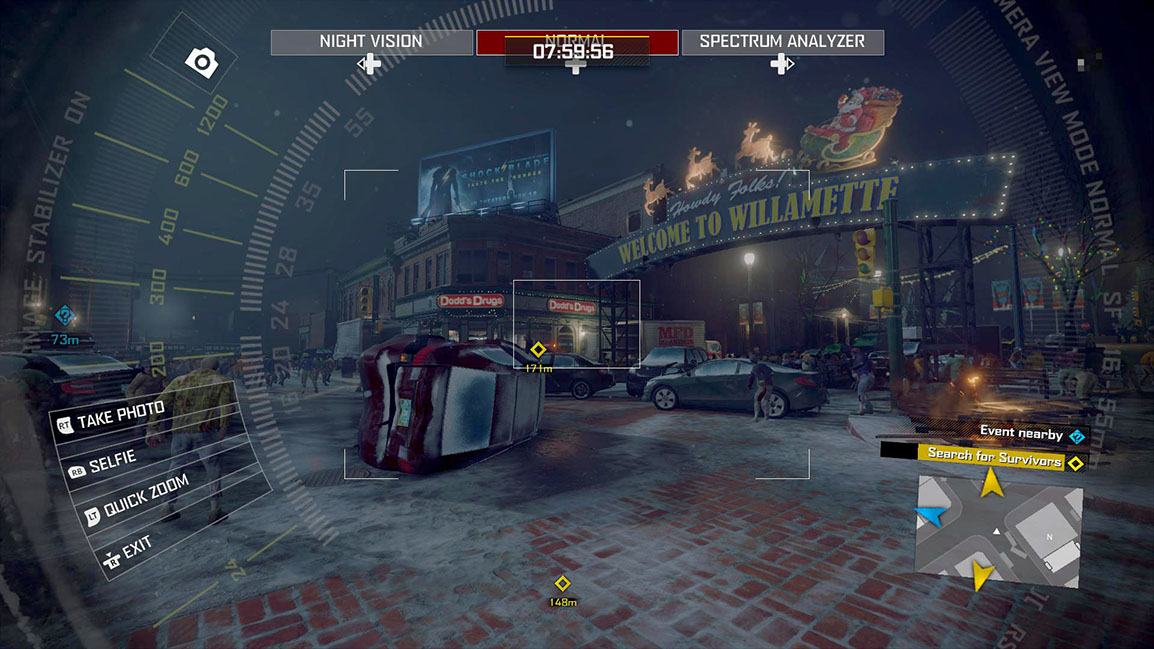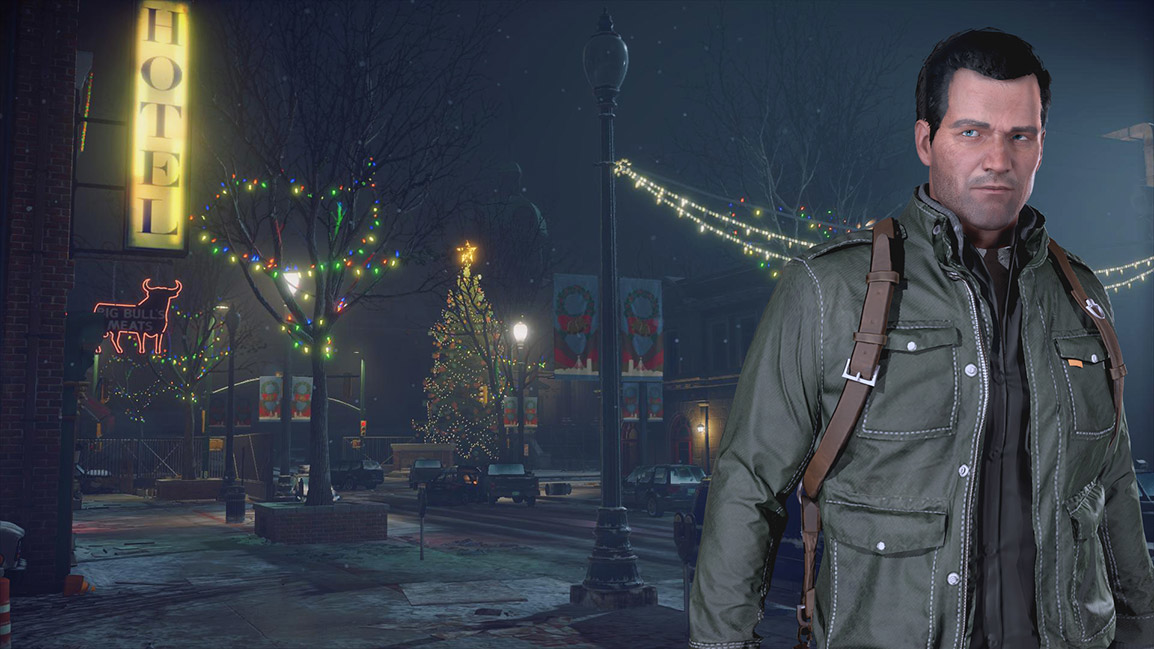Dead Rising 4, released in December, is a sandbox survival game where you mow down hordes of zombies, rescue survivors, take photographs and uncover a giant conspiracy.
Frank West, the protagonist of Dead Rising, returns as a washed-up reporter who stumbles upon a new zombie outbreak in Willamette, the fictional Colorado city of the original game.
Despite drawing so much of its setting from the first Dead Rising, this game falls short in some major areas, as it is unable to recreate what made the first two parts of the game so much fun.
While the original two games were among the first to have zombie hordes on such a massive scale — hundreds of zombies on-screen at once — this doesn’t set it apart anymore, so developers from Capcom Vancouver tried to bring back the Dead Rising brand “quirkiness.”
However, the tone of this game is all over the place. One minute, you’re contemplating whether or not killing zombies is morally right because they were once humans, and the next, Frank West is making one-line quips at roleplaying knights.
Don’t get me wrong — I know that previous games had their serious moments too. But the difference is that Dead Rising 1 and 2 never took themselves seriously. They had dramatic moments born from sincerity, whereas Dead Rising 4 tries too hard to be taken seriously.
Beyond the tonal differences, Dead Rising 4 also makes some serious gameplay changes. The Psychopaths — who are optional or non-optional human bosses — are replaced with maniacs, who are nothing more than tougher enemies without the extensive backstory and personalities that the Psychopaths had.
This turns out to be a huge disappointment as the ludicrous personalities of the Psychopaths were some of the most memorable moments in the first two games, and their absence leaves the game feeling empty.
The 72-hour timer and time restrictions on story mode missions are now removed, and the story mode is now more akin to a true sandbox mode — players can never miss a mission and lose the game as in previous versions of the series.
While the timer was always divisive, I personally believe it was an essential part of Dead Rising. The time restriction forced players to make decisions about how they would play their game — should I go fight a Psychopath or rescue survivors?
Now, unlike in the previous games, it’s possible to accomplish everything in Dead Rising 4 because you will never run out of time, removing an essential thematic mechanic which was a staple of the series. By taking away all the pressure, Dead Rising 4 leaves players with a flawed experience.
The loss of this essential element left me with reduced tension and is why I never died during my time playing. The maniacs are never close to being a threat like the Psychopaths were, and the new enemy human soldiers hardly pose a threat, despite the fact that you have no defense against their ranged weapons.
This ease of difficulty is explained in part by the ease which powerful weapons can be acquired and crafted, including firearms.
Speaking of weapons, Dead Rising 4 continues the series’ wacky crafting mechanics and offers some distinctively fun weapons and a whole plethora of craftable vehicles to mow down zombies and is one of the few highlights in this game.
Other highlights include the solid voice acting, the genuinely funny dialogue, the new leveling progression with skill trees and the Christmas-themed, snow-laden Willamette that looks great. There are still plenty of old-school Dead Rising moments, such as wearing a dress and a pumpkin head mask while flamethrowing zombies, if you desire that.
As a standalone game, Dead Rising 4 does a serviceable job, but when considering this as part of the series, it’s not a good fit.
Stripped of time-management tension and the interesting outlandish characters and enemies, all that’s left in Dead Rising 4 is a mediocre story and the novelty of beating up hundreds of zombies, again. You’d be better off replaying one of the previous Dead Rising games, as this installment does not progress the series in any meaningful way.
Dead Rising 4 is mediocre, doesn’t progress the series
By Jay Cranford
January 24, 2017
Dead Rising 4, released Dec. 2016, is an open world survival horror video game.










